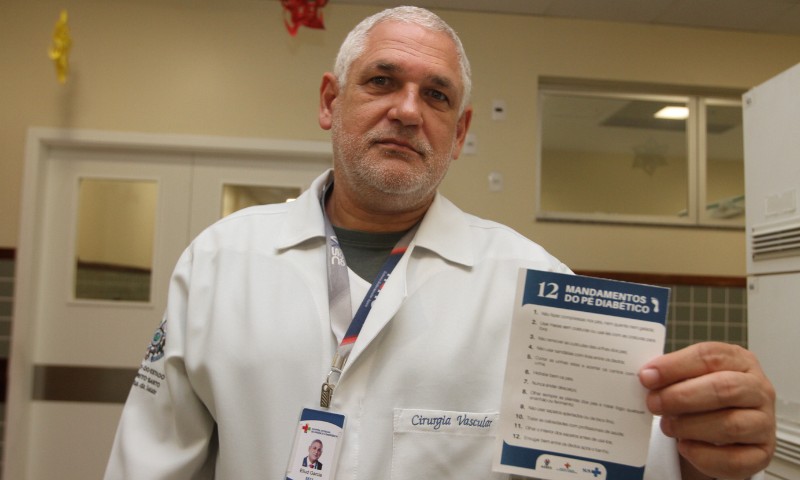As temperatures rise, diabetics, in particular, should take care of their feet. This recommendation comes from experts, who issue a warning and highlight that these people often lose sensitivity to touch, heat and pain, and end up burning and injuring their feet in the hot sand, which can even lead to foot amputation. .
Vascular surgeon Eliud Garcia Duarte Jr., president of the Espiritu Santo Vascular Surgery Society and coordinator of the Vascular Surgery Service at Hospital São Lucas, explains that at this time of year, early in the morning, at nine in the morning, the sand accumulating on the beach is already hot and can To cause damage.
“As a non-diabetic person, I will notice that the sand is hot and I will protect myself by wearing sandals. After a certain period of disease development, a diabetic patient begins to develop diabetic neuropathy, which is a destruction or dysfunction of the peripheral nerves responsible for protective sensitivity.
He explains that the patient loses sensitivity to touch, heat, and painful temperature, and does not feel the heat of the sand, which may cause burns up to the third degree.
“In the case of burns that may reach the third degree, blisters and injuries form, including bleeding. Amputation occurs precisely because of the complexity of this condition, due to bacteria that eventually enter the wound and settle in it, in addition to the low immunity in these patients.
Vascular surgeon José Marcelo Corasa advises these patients to always remain alert and protect the foot.
“Since it doesn't feel like it, the best alternative is to wear comfortable shoes and avoid laces or seams that can end up putting pressure on the limb.”
He points out that the ideal situation is to have someone who can monitor a diabetic patient's feet once or twice a week, to see if there are any changes.
“You should check if you have chilblains, mycosis, or blisters, and check if your shoes may have caused any wounds. After the accident, if you determine there are injuries, it is advisable to see a doctor.
know more
Healthy habits fight disease
Diabetes
– It is a chronic disease in which the level of glucose in the blood rises because the body is unable to produce insulin or produces an insufficient amount of it.
Insulin deficiency, or the inability of cells to respond to insulin, leads to high blood glucose levels, or hyperglycemia.
state
– Considering the population, according to data from the Brazilian Institute of Geography and Statistics (IBGE), in 2023, Espírito Santo registered about 368,036 adults with diabetes.
Diabetic neuropathy
– After a certain period of disease development, diabetics begin to develop diabetic neuropathy, which is a destruction or dysfunction of the peripheral nerves responsible for protective sensitivity.
Scratches
Tight shoes, ingrown toenails, objects in shoes, foot burns, and nail cuticle removal represent 25% of leg or thigh amputations in diabetics.
Care
– Change your lifestyle habits: go for a walk, avoid smoking and stress. This helps in controlling the disease.
Where to seek care
The preferred gateway of the Unified Health System (SUS) is Primary Health Care (PHC), which is responsible for the care and monitoring of people with the disease.
Citizens can go to the basic health unit (UBS) closest to their home to start health care and disease control.
source: Heard the experts and Sisa.
Related topics:
Cities
Punishment for harassment in bars, nightclubs and shows
Cities
New Year's Eve with fireworks display on 5 beaches in Guarapari
Cities
A professor and a doctor go to court after falling victim to fake news
Cities
They dream of winning Mega-Sena for doing good

“Wannabe internet buff. Future teen idol. Hardcore zombie guru. Gamer. Avid creator. Entrepreneur. Bacon ninja.”

